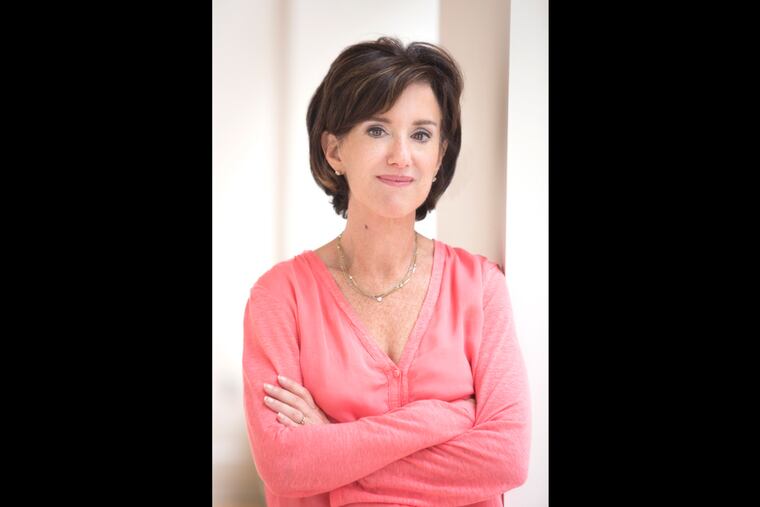After a rich career in media, HGTV cofounder Susan Packard is all about helping women
The cofounder of HGTV handicaps new content, channels, and streaming services.

Netflix will likely start buying smaller streaming services, and competing television and movie studios must draw viewers with “content they love” to get them to pay, says longtime media executive Susan Packard.
Good storytelling, the right talent and writers, exclusive shows, and original content for streaming brands are the keys to success in the new landscape, according to Packard.
Next month, she will share these and other insights with local chief executives, as well as discuss her new book, Fully Human. Packard is also the cofounder of Scripps Networks Interactive, which was acquired by Discovery Inc. for about $15 billion.
Packard assisted in the creation of television networks that have become household names, including CNBC, HGTV, Food Network, and DIY Network. As chief operating officer of HGTV, Packard helped the network rise to a market value of more than $15 billion, making it one of the fastest-growing television brands in history.
She has written books covering topics from strategies for women leading in the workplace, New Rules of the Game: 10 Strategies for Women in the Workplace, to growing one’s emotional intelligence for personal fulfillment and success.
“I had a full, rich career in media and starting businesses in media. I then wrote a book, 10 Strategies for Women, after that, thinking it would be helpful to others,” Packard said recently. “I interviewed 10 CEOs to validate my strategies.”
Packard will keynote the CEO Think Tank 14th annual Growth Strategies Breakfast on Thursday, March 12, at the Union League of Philadelphia.
Her new book “is really about the outer work we do, how we communicate, negotiate, how we hire,” she says. “Now we need to think more around enlightened leadership.”
What does that mean? “Emotional IQ, which also means ‘we’ principles. A mindset that’s greater than your own self-interest.”
Packard told the Wall Street Journal that being the boss isn’t always fun; a former colleague contradicted her in meetings and rolled his eyes as she spoke after she was promoted to a job at his level. She tried asking him to coffee or lunch and requesting his advice in his areas of strength, but he still didn’t warm up, she says. “It wouldn’t have mattered if I’d said, ‘I’ll wash your car every Friday.’ It just wasn’t going to happen,” Packard says.
She recommends finding a download partner — a person you can call for support when you need to vent. Also, look for other sources of meaning to build an emotional fitness at work.
Packard’s role wasn’t choosing a host or creating a concept for a television show. Instead, she ran the business side.
What were some of her lessons learned?
At HGTV, “I was the second employee, and it was a dream, which fortunately was realized. And we fanned out and hired people and got it started.”
Later, her resumé included Scripps Networks, including the launch of the DIY Network and the purchase of the Travel Channel.
“Those started growing as lifestyle brands. The move from analog to digital tech was huge. I ran something called ‘new ventures.’ We worked with on-demand platforms. Then we launched websites. There were a number of networks that had been around — ESPN, A&E, MTV — that were launched in the 1980s. They launched their websites but structured them as part of a P&L [profit and loss] of the television business, so the advertising sales folks could throw them in for added value. We made our online businesses standalone; they had to make it or break it. I’m proud of us having done that; it forced discipline on that business.”
She’s blown away by the proliferation of television and movies, streaming services, and new channels.
“For programmers, of which I was part, we created content, and the question was, where would it go? We wanted it to go everywhere. We didn’t want it just to go through the distributor. Comcast, in Philly, we loved them, they had so much distribution. But it was still a small percentage of TV homes. Because we got a fee from Comcast, we had to come to the table and be fair about how we distribute when it wasn’t on Comcast.” Packard was the chief negotiator with Comcast for many years, and “they were tough, that’s why they’re so profitable.”
Netflix, she adds, “is the exception to every rule.”
How so? “Amazon has its own studio, creating their own studio. Netflix does, too. But where will they release their content? It’s not so much building; it’s thinking in terms of various platforms it could be released on. There are very few traditional cable providers left, and they’re merging for scale. They recognize how much investment is needed to break through entrenched viewing patterns.”
Winners and losers
“The business is as precarious as it was in the 1980s and ’90s, when genres of networks were launching. When we launched, over 100 others launched, too, and only HGTV and two others, History Channel and Golf Channel, made it. Golf had to be reconstituted and blew through a couple hundred million before they got the model right, and it went advertiser- and operator-supported. I suspect the same rules will apply that applied then: Make shows with good storytelling, so hire the right talent, writers, do exclusive shows, like CBS All Access did with Picard. HGTV was over 90% exclusive, still is, and does original for its streaming brands. Netflix will likely begin buying smaller streaming services.”
Since leaving television, Packard has been speaking, mentoring, and hosting women’s leadership events.
“I learned ‘centering prayer,’ and now I’m trained to teach it as well.”
Growth Strategies Breakfast. 7:30 to 10:30 a.m. March 12 at the Union League, 140 S. Broad St. Information: ceothinktank.com